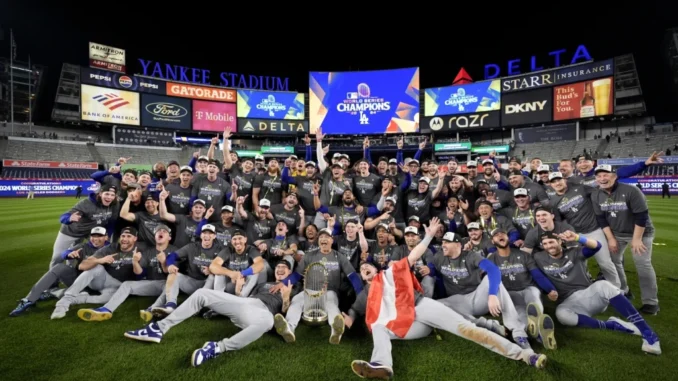
The Los Angeles Dodgers, fresh off their recent World Series victory, have once again cemented their position as MLB’s most significant financial powerhouse. With a staggering $103 million luxury tax bill, the Dodgers lead Major League Baseball in penalties for the 2024 season. This marks the latest chapter in a long-standing trend where the Dodgers consistently rank among the highest spenders in the league, reinforcing their commitment to acquiring top-tier talent while navigating the complexities of MLB’s financial landscape.
In baseball, teams that exceed a set payroll threshold are required to pay a luxury tax, which acts as a deterrent against overspending. This threshold is adjusted annually based on inflation and the overall growth of MLB revenues. For 2024, the luxury tax threshold is set at $233 million. Any team exceeding this limit faces escalating penalties, with the Dodgers being the most notable example. Their payroll has consistently surpassed this benchmark, and their $103 million tax bill is a direct result of their aggressive investment in player talent.
While the Dodgers’ spending reflects their ambition to maintain a competitive roster, it’s not just them facing penalties. This year, a record nine teams have crossed the luxury tax line, triggering penalties. Teams like the New York Mets, New York Yankees, and the San Diego Padres are also on the list of luxury tax offenders, contributing to a growing trend in MLB where more franchises push the boundaries of the payroll cap. For these teams, the penalties often include a percentage tax on their overage, with the rates increasing based on the amount by which they exceed the threshold.
The Dodgers’ financial approach has often been scrutinized, with critics arguing that their high payroll can create an uneven playing field in MLB. However, for the franchise, this strategy is part of a broader effort to build a championship-caliber team. The Dodgers have assembled one of the most talented rosters in the league by investing in free agents, locking down high-priced veterans, and developing homegrown talent. Their focus on winning championships has justified their willingness to pay the luxury tax, and the 2020 World Series title was a testament to the success of their approach.
The increasing number of teams paying the luxury tax raises questions about MLB’s financial system. While larger-market teams like the Dodgers and Mets have the financial muscle to surpass the payroll cap, smaller-market teams often find themselves at a disadvantage in terms of player acquisitions. The growing trend of multiple teams crossing the threshold suggests that the luxury tax has less of a deterrent effect than it was originally intended to have. Moreover, as teams continue to push the payroll boundaries, the question arises as to whether MLB will need to reevaluate the luxury tax system to ensure more competitive balance.
In conclusion, the Dodgers’ $103 million luxury tax bill serves as a reminder of the vast financial resources available to top-tier MLB teams. While they lead the league in penalties, they also remain one of the most successful franchises in terms of performance, as demonstrated by their recent World Series title. The increasing number of teams facing luxury tax penalties suggests that MLB’s financial structure is evolving, raising questions about the future of competitive balance within the league.
Leave a Reply